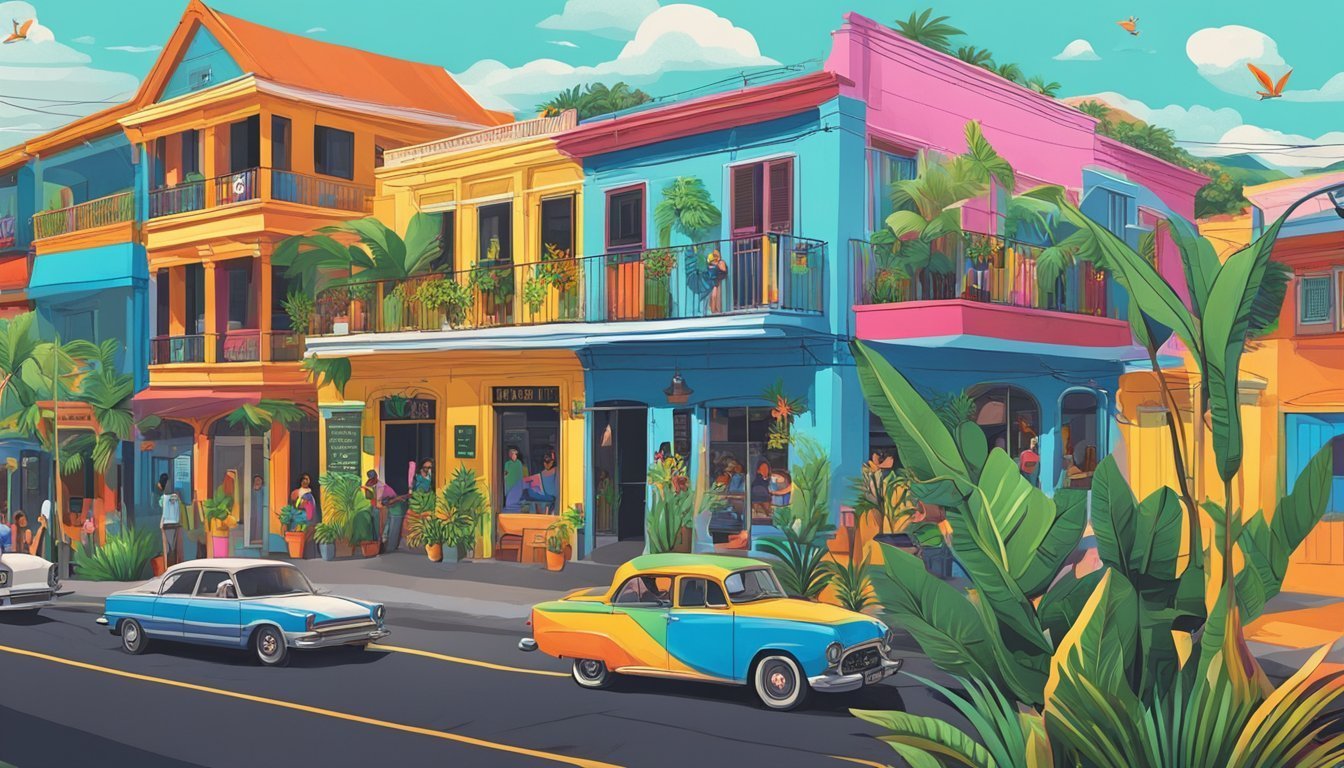In an exciting milestone, the Getty Museum has officially added its first AI-generated photograph to its collection.
The piece, “Cristian en el Amor de Calle” (2024), is the brainchild of Matías Sauter Morera, a talented queer artist from Costa Rica.
This striking image features two young Latino men dressed in vivid blue leather jackets adorned with intricate gold designs, set against the warm ambiance of a bustling bar or café.
The compelling gaze of the central figure infuses the artwork with a captivating energy that pulls viewers into its narrative.
Cultural Significance
This photograph thoughtfully highlights the rich queer heritage of the pegamachos—legendary cowboys from Costa Rica’s Guanacaste Coast, famed for their discreet romantic relationships with young men.
The pegamachos’ lifestyle demands a degree of anonymity to safeguard their identities and relationships.
To elegantly navigate this sensitive terrain, Morera harnessed the power of AI to create this piece, successfully maintaining the anonymity of real individuals.
He explained that utilizing AI allowed him to express this essence without compromising the safety or privacy of those within the community.
Artistic Process
The creation of “Cristian en el Amor de Calle” involved seamlessly combining various AI models with Adobe Photoshop.
This innovative process empowered Morera to dream up and fabricate imagery that resonates with the cultural richness of the pegamachos, all while bypassing conventional limitations.
Future Exhibitions
Paul Martineau, the Getty Museum’s curator of photography, points out that while the work employs advanced AI techniques, it unequivocally stands as a photograph in its own right.
Since the advent of AI technology, discussions amongst artists regarding its impact on human creativity have intensified.
Many have raised concerns about the potential for exploitation in this evolving landscape.
Set to be highlighted in an upcoming solo show entitled “Pegamachos” at the Craig Kroll Gallery, “Cristian en el Amor de Calle” will be featured prominently from March 22 to May 3, 2025.
Additionally, this remarkable photograph will appear in the group exhibition “The Queer Lens: A History of Photography,” curated by Martineau, which is scheduled to run at the Getty Museum from June 17 to September 28, 2025.
This acquisition represents a significant artistic achievement for the Getty Museum, bridging the gap between technological advancement and creative expression while celebrating the hidden narratives within Costa Rica’s vibrant cultural history.


